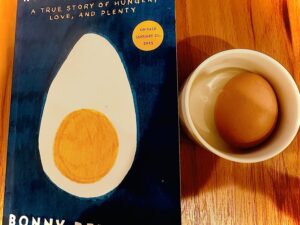About the Book
London, 1754. Six years after leaving her illegitimate newborn at the Foundling Hospital, Bess Bright returns to reclaim the daughter she has never known. Dreading the worst, that she has died in care, she is astonished to discover someone pretending to be Bess has already claimed her. Her life is turned upside down as she tries to find out who has taken her little girl—and why.
Less than a mile from Bess’s poor lodgings, in a quiet Georgian townhouse, lives Alexandra, a reclusive young widow. When her close friend—an ambitious doctor at the orphanage—persuades her to hire a nursemaid to help care for her daughter, she is hesitant to welcome someone new into her home. But her past is threatening to catch up with her and tear her carefully constructed world apart.
From the Sunday Times bestselling author of The Familiars comes this captivating story of mothers and daughters, class and power, and love against the greatest of odds.
The Review
The story is told from the perspectives of two women: Bess, the single mother living in one of the poorest neighbourhoods in London, and upper-class Alexandra. Bess makes her living selling shrimp for her father. Alexandra is whale bone merchant Daniel’s widow. Single Bess gives birth to her daughter Clara and immediately takes her to the Foundling Hospital, giving her up, with every intention of reclaiming her. Her story is initially the more interesting of the two women. A life fraught with poverty and tragedy is always more interesting than Alexandra’s seemingly closed off life.
When the book switches to Alexandra’s perspective, it becomes less interesting at first. She only leaves her house once a week to go to church, and she only allows her six-year old daughter to leave with her. As the chapters build, you begin to wonder why she refuses to leave her house and why she is so strangely awkward around her daughter when “Eliza Smith” is able to connect so quickly with her. Alexandra becomes more and more interesting as the book moves on and as her secrets are slowly revealed.
The book is definitely one where there is an emotional connection between two women, but it is not typical in any way. The story of the disparity between the upper and lower class makes it a very compelling read. Stacey Halls writing is so interesting. The story is very much entrenched in 17th century England, but the writing and language almost keeps a modern tone. It is a good book for someone who wants to begin reading historical fiction, but finds Old English off-putting. She also was able to keep the story suspenseful from start to finish while providing the reader with the motivation of each character. Bess’s motivation was obvious from page one, the interest came from understanding what Alexandra’s motivations were.
The Lost Orphan is a must read for lovers of historical fiction who like the dichotomy of a character worth rooting for, and one that you grow, begrudgingly, to root for too.
Favourite Line From the Book
This line showcases Bess’s perspective on Alexandra’s cold relationship with her daughter Charlotte and was the beginning of understanding Alexandra’s motivation:
“I told him of Alexandra Callard and how she stroked the pictures of her dead parents but could not touch her daughter.”








